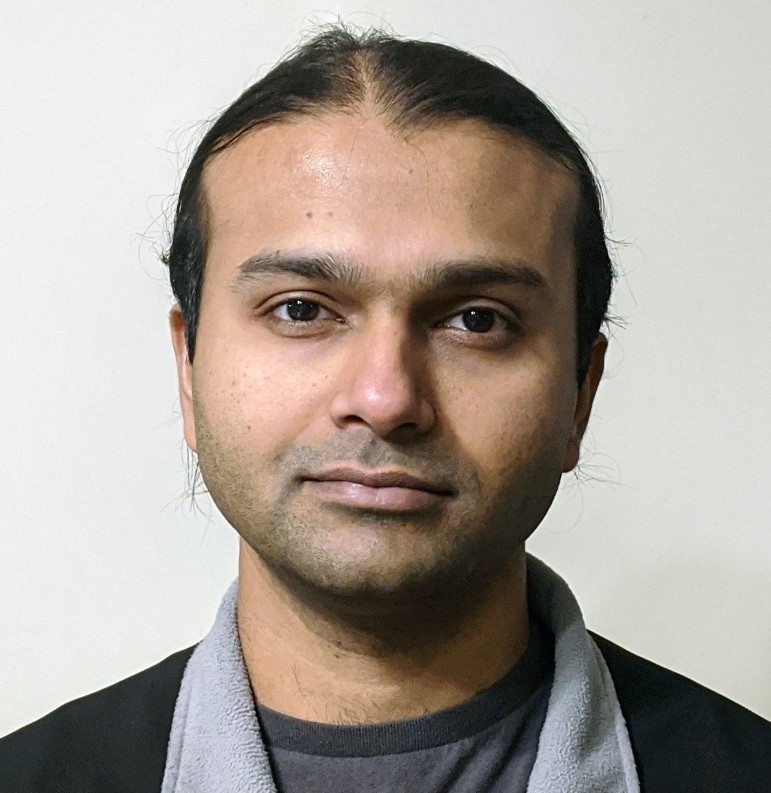Why do we need sleep?
Getting enough sleep is crucial for maintaining brain health, reducing the risk for neurodegenerative and cardiovascular disease, bolstering the immune system, sustaining good mental health, and recovering from the stressors of the day. The American Academy of Sleep Medicine and Sleep Research Society recommends that adults (over 18 years of age) should get at least 7 hours of sleep per night.[1] Sleep deprivation is associated with obesity, and this relationship may be due to changes in eating, activity levels and hormone levels.[2]
How could diet affect sleep?
Changes in an individual’s dietary pattern can impact their sleep architecture. A meta-analysis found that high carbohydrate intake increases rapid-eye movement (REM) sleep, whereas low carbohydrate intake increases non-rapid-eye movement (non-REM sleep).[3] Also, some observational studies have found an association between increased healthy food (e.g. fruits, vegetables, fiber, seafood, and whole grains) intake and improved sleep quality.[4] In essence, consuming a balanced and nutrient-rich diet may help to optimize sleep.
Which supplements are of most interest for sleep?
The supplements of most interest are apigenin (the active ingredient in chamomile), California poppy, cannabidiol, hops, passionflower, kava, lavender, magnesium, melatonin, and valerian. However, it is best to consult a healthcare provider before consuming any sleep supplement because they may interact with prescription medications.
Supplement Guide
Examine Database: Sleep
Frequently asked questions
Getting enough sleep is crucial for maintaining brain health, reducing the risk for neurodegenerative and cardiovascular disease, bolstering the immune system, sustaining good mental health, and recovering from the stressors of the day. The American Academy of Sleep Medicine and Sleep Research Society recommends that adults (over 18 years of age) should get at least 7 hours of sleep per night.[1] Sleep deprivation is associated with obesity, and this relationship may be due to changes in eating, activity levels and hormone levels.[2]
Although sleep requirements may not differ between young and middle-aged adults, older adults tend to have a more difficulty getting their required amount of sleep.[8] Some studies have suggested that, rather than being an intrinsic part of the aging process, sleep deficiencies may be secondary to other illnesses in older people.[9] Regardless of the cause, both short and long sleep durations have been associated with increased risk of cardiovascular disease and cancer mortality.[10] Some researchers have speculated that negative health-associations with long sleep duration may be due to decreased sleep quality due to sleep fragmentation.[10]
A few nights of subpar sleep will leave anybody groggy, irritable, and a bit lacking in brain function. A major mechanism by which one becomes sleepy is the buildup of adenosine levels in the brain, which are lower after getting adequate sleep. Based on the adenosine hypothesis, sleep debt (caused by excessive adenosine levels in the brain) could be paid back at some time in the future by getting better sleep. However, recent animal studies suggest that this might not be the case. Instead, extended periods of sleep deprivation may lead to lasting brain injury through increased oxidative stress and inflammation that can worsen neurodegeneration.[11] Although it remains to be seen whether similar mechanisms are at work in humans, 5–10 days of sleep deprivation impaired cognition in humans, which did not fully recover after 3 or more days of adequate sleep.[12][13] This suggests that extended periods of sleep loss may cause lasting, negative effects on the brain that may not be “paid back” with a few days of good sleep.
Sleep plays an important role in overall health. Not getting enough sleep, or not getting enough good-quality sleep, is associated with a higher risk of many negative health outcomes. The following are just some of the outcomes linked to poor sleep:
-
Coronary heart disease. Sleeping less than 7 hours per night is associated with a higher risk of coronary heart disease (CHD) and an elevated risk of cardiovascular disease (CVD) mortality.[14][15] Additionally, a genetic study found that a short sleep duration (6 or fewer hours per night) appeared causally related to a higher risk of CHD, high blood pressure, and heart attack.[16]
-
Obesity: Getting less sleep is associated with a higher risk of obesity.[17][18] Consistent with this association, restricting sleep to just 4 hours per night has been shown to increase hunger and calorie intake and lead to weight gain (sometimes in as little as 5 days).[19][20] Conversely, increasing sleep time from 5.9 to 7.1 hours per night in one clinical trial led to a reduction in caloric intake and a loss of body fat after 2 weeks.[21]
-
Alzheimer’s disease: Poor quality sleep and sleep problems are associated with a higher risk of Alzheimer’s disease, and a short sleep duration is linked to a faster rate of cognitive decline.[22][23] This could be related to the glymphatic system, a biological drainage system active during sleep that seems to clear the brain of beta amyloid, a protein linked to Alzheimer’s disease.[24][25]
-
Type 2 diabetes: A meta-analysis of roughly one million people found that a short sleep duration(6 or fewer hours per night) was associated with an increase in the risk of type 2 diabetes.[26] Additionally, a genetic study found that insomnia increased the risk of type 2 diabetes, suggesting a causal association between sleep problems and diabetes.[27]
-
Bone fracture: Sleep disturbances, insomnia, and a short sleep duration (less than 7 hours per night) are associated with a higher risk of breaking a bone, possibly by increasing the tendency to fall.[28][29][30] A relationship between poor sleep, bone fractures, and low bone mineral density has also been observed in genetic studies.[29][31]
-
Depression: A short sleep duration (7 or fewer hours per night) is associated with a greater risk of depression. Having insomnia is also associated with a higher risk of developing depression[32] and treating insomnia has been shown to improve symptoms of depression.[33][34][35]
Health outcomes linked to poor sleep

Changes in an individual’s dietary pattern can impact their sleep architecture. A meta-analysis found that high carbohydrate intake increases rapid-eye movement (REM) sleep, whereas low carbohydrate intake increases non-rapid-eye movement (non-REM sleep).[3] Also, some observational studies have found an association between increased healthy food (e.g. fruits, vegetables, fiber, seafood, and whole grains) intake and improved sleep quality.[4] In essence, consuming a balanced and nutrient-rich diet may help to optimize sleep.
It is thought that a carbohydrate-rich or a high-glycemic-index meal can affect sleep through its effects on tryptophan (an essential amino acid) levels.[5] More specifically, high-glycemic-index carbohydrates cause a rise in insulin levels, which drive circulating large neutral amino acids (LNAAs)[6] into muscles. Because LNAAs compete with tryptophan for transport across the blood-brain barrier, lower levels of blood LNAAs result in a higher tryptophan-to-LNAA ratio, so more tryptophan can travel to the brain. More tryptophan entering the brain leads to greater production of serotonin,[7] and, finally, to the secretion of melatonin (a sleep-inducing hormone), resulting in sleepiness.
The supplements of most interest are apigenin (the active ingredient in chamomile), California poppy, cannabidiol, hops, passionflower, kava, lavender, magnesium, melatonin, and valerian. However, it is best to consult a healthcare provider before consuming any sleep supplement because they may interact with prescription medications.
While there is a general consensus that exercising in the morning or afternoon benefits sleep, it’s often recommended to avoid exercising, especially at a high intensity, in the evening in fear of it negatively affecting sleep.
However, according to a meta-analysis published in 2021, an acute bout of high-intensity exercise performed 2–4 hours before bedtime does not disrupt sleep.[36] In fact, performing high-intensity exercise 2 hours before bedtime tends to increase total sleep time (+16 minutes) and decrease the time it takes to fall asleep (−5 minutes). However, longer duration high-intensity exercise (>30–60 minutes) may decrease rapid-eye movement sleep to a small extent (−3%).
In a 7-week study in elite youth soccer players, an evening high-intensity exercise session did not affect sleep quality and slightly increased sleepiness at bedtime, compared to nights where no exercise was performed.[37]
In sum, high-intensity evening exercise does not appear to negatively affect sleep. Careful consideration should be given to pre-workout supplements when exercising in the evening, as products containing caffeine can negatively affect sleep.
References
- ^, Watson NF, Badr MS, Belenky G, Bliwise DL, Buxton OM, Buysse D, Dinges DF, Gangwisch J, Grandner MA, Kushida C, Malhotra RK, Martin JL, Patel SR, Quan SF, Tasali E, , Twery M, Croft JB, Maher E, , Barrett JA, Thomas SM, Heald JLRecommended Amount of Sleep for a Healthy Adult: A Joint Consensus Statement of the American Academy of Sleep Medicine and Sleep Research Society.J Clin Sleep Med.(2015-Jun-15)
- ^Cooper CB, Neufeld EV, Dolezal BA, Martin JLSleep deprivation and obesity in adults: a brief narrative review.BMJ Open Sport Exerc Med.(2018)
- ^Vlahoyiannis A, Giannaki CD, Sakkas GK, Aphamis G, Andreou EA Systematic Review, Meta-Analysis and Meta-Regression on the Effects of Carbohydrates on Sleep.Nutrients.(2021-Apr-14)
- ^St-Onge MP, Mikic A, Pietrolungo CEEffects of Diet on Sleep Quality.Adv Nutr.(2016-09)
- ^Wurtman RJ, Wurtman JJ, Regan MM, McDermott JM, Tsay RH, Breu JJEffects of normal meals rich in carbohydrates or proteins on plasma tryptophan and tyrosine ratiosAm J Clin Nutr.(2003 Jan)
- ^Berry EM, Growdon JH, Wurtman JJ, Caballero B, Wurtman RJA balanced carbohydrate: protein diet in the management of Parkinson's diseaseNeurology.(1991 Aug)
- ^Zimmermann RC, McDougle CJ, Schumacher M, Olcese J, Heninger GR, Price LHUrinary 6-hydroxymelatonin sulfate as a measure of melatonin secretion during acute tryptophan depletionPsychoneuroendocrinology.(1993)
- ^Chaput JP, Dutil C, Sampasa-Kanyinga HSleeping hours: what is the ideal number and how does age impact this?Nat Sci Sleep.(2018)
- ^Vitiello MV, Moe KE, Prinz PNSleep complaints cosegregate with illness in older adults: clinical research informed by and informing epidemiological studies of sleep.J Psychosom Res.(2002-Jul)
- ^Grandner MA, Drummond SPWho are the long sleepers? Towards an understanding of the mortality relationship.Sleep Med Rev.(2007-Oct)
- ^Zamore Z, Veasey SCNeural consequences of chronic sleep disruption.Trends Neurosci.(2022-Jun-09)
- ^Axelsson J, Kecklund G, Akerstedt T, Donofrio P, Lekander M, Ingre MSleepiness and performance in response to repeated sleep restriction and subsequent recovery during semi-laboratory conditions.Chronobiol Int.(2008-Apr)
- ^Jeremi K Ochab, Jerzy Szwed, Katarzyna Oleś, Anna Bereś, Dante R Chialvo, Aleksandra Domagalik, Magdalena Fąfrowicz, Halszka Ogińska, Ewa Gudowska-Nowak, Tadeusz Marek, Maciej A NowakObserving changes in human functioning during induced sleep deficiency and recovery periodsPLoS One.(2021 Sep 1)
- ^Dongming Wang, Wenzhen Li, Xiuqing Cui, Yidi Meng, Min Zhou, Lili Xiao, Jixuan Ma, Guilin Yi, Weihong ChenSleep duration and risk of coronary heart disease: A systematic review and meta-analysis of prospective cohort studiesInt J Cardiol.(2016 Sep 15)
- ^Krittanawong C, Tunhasiriwet A, Wang Z, Zhang H, Farrell AM, Chirapongsathorn S, Sun T, Kitai T, Argulian EAssociation between short and long sleep durations and cardiovascular outcomes: a systematic review and meta-analysis.Eur Heart J Acute Cardiovasc Care.(2019-Dec)
- ^Sizhi Ai, Jihui Zhang, Guoan Zhao, Ningjian Wang, Guohua Li, Hon-Cheong So, Yaping Liu, Steven Wai-Ho Chau, Jie Chen, Xiao Tan, Fujun Jia, Xiangdong Tang, Jie Shi, Lin Lu, Yun-Kwok WingCausal associations of short and long sleep durations with 12 cardiovascular diseases: linear and nonlinear Mendelian randomization analyses in UK BiobankEur Heart J.(2021 Sep 7)
- ^Qionggui Zhou, Ming Zhang, Dongsheng HuDose-response association between sleep duration and obesity risk: a systematic review and meta-analysis of prospective cohort studiesSleep Breath.(2019 Dec)
- ^Francesco P Cappuccio, Frances M Taggart, Ngianga-Bakwin Kandala, Andrew Currie, Ed Peile, Saverio Stranges, Michelle A MillerMeta-analysis of short sleep duration and obesity in children and adultsSleep.(2008 May)
- ^Naima Covassin, Prachi Singh, Shelly K McCrady-Spitzer, Erik K St Louis, Andrew D Calvin, James A Levine, Virend K SomersEffects of Experimental Sleep Restriction on Energy Intake, Energy Expenditure, and Visceral ObesityJ Am Coll Cardiol.(2022 Apr 5)
- ^Bingqian Zhu, Changgui Shi, Chang G Park, Xiangxiang Zhao, Sirimon ReutrakulEffects of sleep restriction on metabolism-related parameters in healthy adults: A comprehensive review and meta-analysis of randomized controlled trialsSleep Med Rev.(2019 Jun)
- ^Esra Tasali, Kristen Wroblewski, Eva Kahn, Jennifer Kilkus, Dale A SchoellerEffect of Sleep Extension on Objectively Assessed Energy Intake Among Adults With Overweight in Real-life Settings: A Randomized Clinical TrialJAMA Intern Med.(2022 Feb 7)
- ^Omonigho M Bubu, Michael Brannick, James Mortimer, Ogie Umasabor-Bubu, Yuri V Sebastião, Yi Wen, Skai Schwartz, Amy R Borenstein, Yougui Wu, David Morgan, William M AndersonSleep, Cognitive impairment, and Alzheimer's disease: A Systematic Review and Meta-AnalysisSleep.(2017 Jan 1)
- ^Ma Y, Liang L, Zheng F, Shi L, Zhong B, Xie WAssociation Between Sleep Duration and Cognitive Decline.JAMA Netw Open.(2020-09-01)
- ^Jeffrey J Iliff, Minghuan Wang, Yonghong Liao, Benjamin A Plogg, Weiguo Peng, Georg A Gundersen, Helene Benveniste, G Edward Vates, Rashid Deane, Steven A Goldman, Erlend A Nagelhus, Maiken NedergaardA paravascular pathway facilitates CSF flow through the brain parenchyma and the clearance of interstitial solutes, including amyloid βSci Transl Med.(2012 Aug 15)
- ^Xie L, Kang H, Xu Q, Chen MJ, Liao Y, Thiyagarajan M, O'Donnell J, Christensen DJ, Nicholson C, Iliff JJ, Takano T, Deane R, Nedergaard MSleep drives metabolite clearance from the adult brainScience.(2013 Oct 18)
- ^Anothaisintawee T, Reutrakul S, Van Cauter E, Thakkinstian ASleep disturbances compared to traditional risk factors for diabetes development: Systematic review and meta-analysis.Sleep Med Rev.(2016-12)
- ^Xue Gao, Heli Sun, Yu Zhang, Long Liu, Juping Wang, Tong WangInvestigating Causal Relations Between Sleep-Related Traits and Risk of Type 2 Diabetes Mellitus: A Mendelian Randomization StudyFront Genet.(2020 Dec 15)
- ^Feng Pan, Jing Tian, Flavia Cicuttini, Graeme JonesSleep disturbance and bone mineral density, risk of falls and fracture: Results from a 10.7-year prospective cohort studyBone.(2021 Jun)
- ^Yu Qian, Jiangwei Xia, Ke-Qi Liu, Lin Xu, Shu-Yang Xie, Guo-Bo Chen, Pei-Kuan Cong, Saber Khederzadeh, Hou-Feng ZhengObservational and genetic evidence highlight the association of human sleep behaviors with the incidence of fractureCommun Biol.(2021 Nov 26)
- ^Jane A Cauley, Kathleen M Hovey, Katie L Stone, Chris A Andrews, Kamil E Barbour, Lauren Hale, Rebecca D Jackson, Karen C Johnson, Erin S LeBlanc, Wenjun Li, Oleg Zaslavsky, Heather Ochs-Balcom, Jean Wactawski-Wende, Carolyn J CrandallCharacteristics of Self-Reported Sleep and the Risk of Falls and Fractures: The Women's Health Initiative (WHI)J Bone Miner Res.(2019 Mar)
- ^Chen J, Zhang J, So HC, Ai S, Wang N, Tan X, Wing YKAssociation of Sleep Traits and Heel Bone Mineral Density: Observational and Mendelian Randomization Studies.J Bone Miner Res.(2021-11)
- ^Liqing Li, Chunmei Wu, Yong Gan, Xianguo Qu, Zuxun LuInsomnia and the risk of depression: a meta-analysis of prospective cohort studiesBMC Psychiatry.(2016 Nov 5)
- ^W Vaughn McCall, Jill N Blocker, Ralph D'Agostino Jr, James Kimball, Niki Boggs, Barbara Lasater, Roger Haskett, Andrew Krystal, William M McDonald, Peter B RosenquistTreatment of insomnia in depressed insomniacs: effects on health-related quality of life, objective and self-reported sleep, and depressionJ Clin Sleep Med.(2010 Aug 15)
- ^Maurizio Fava, W Vaughn McCall, Andrew Krystal, Thomas Wessel, Robert Rubens, Judy Caron, David Amato, Thomas RothEszopiclone co-administered with fluoxetine in patients with insomnia coexisting with major depressive disorderBiol Psychiatry.(2006 Jun 1)
- ^Rachel Manber, Jack D Edinger, Jenna L Gress, Melanie G San Pedro-Salcedo, Tracy F Kuo, Tasha KalistaCognitive behavioral therapy for insomnia enhances depression outcome in patients with comorbid major depressive disorder and insomniaSleep.(2008 Apr)
- ^Emmanuel Frimpong, Melodee Mograss, Tehila Zvionow, Thien Thanh Dang-VuThe effects of evening high-intensity exercise on sleep in healthy adults: A systematic review and meta-analysisSleep Med Rev.(2021 Aug 3)
- ^Robey E, Dawson B, Halson S, Gregson W, Goodman C, Eastwood PSleep quantity and quality in elite youth soccer players: a pilot study.Eur J Sport Sci.(2014)







